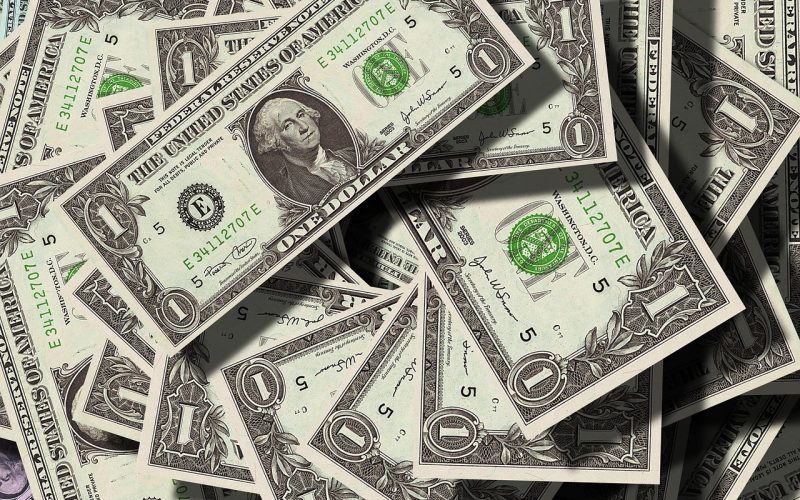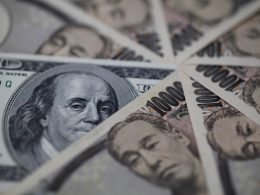In recent months, the markets have been extremely volatile. The coronavirus pandemic has caused disruption, uncertainty, and employment rates to all drop drastically. As a result, investors have had to make quick decisions in order to protect their investments and turn a profit. One hedge fund chief is warning of high inflation in these uncertain times – Erik Fjellborg, founder and CEO of Sweden-based Saturnus Capital AB. In an interview with Bloomberg Television, Fjellborg said that investors should be prepared for rising prices due to increased stimulus programs and monetary easing in 2020. In this blog post, we will explore what he said about inflation and how it could affect markets in the future.
What is a hedge fund?
A hedge fund is an investment fund that pools capital from accredited investors and invests in a variety of assets, often with complex strategies. Hedge funds are generally unregulated, which allows them to use aggressive investment techniques that may not be allowed in other types of investments.
Hedge funds typically have high minimum investment requirements and charge large fees, which can make them inaccessible to many investors. They are also often opaque, meaning it can be difficult for investors to understand how their money is being invested.
Despite these drawbacks, hedge funds can offer several potential benefits, including the ability to generate strong returns in both good and bad market conditions. For this reason, they have become increasingly popular in recent years, especially among wealthy investors.
What is inflation?
Inflation is the sustained increase in the general price level of goods and services in an economy. Over time, inflation erodes the purchasing power of money, which means that each unit of currency buys fewer goods and services. Central banks attempt to mitigate the effects of inflation by raising interest rates, which makes it more expensive for businesses to borrow money and slows economic growth.
Inflation has been relatively low in developed economies since the global financial crisis, but there are signs that it is starting to pick up. In the United States, for example, the Consumer Price Index rose 2.1% in 2018, the highest rate since 2012. And in December 2018, the Federal Reserve raised its target range for the federal funds rate by 25 basis points to 2.25%-2.50%, the fourth rate hike in 2018.
Some economists are concerned that inflation could start to accelerate if wages start to grow faster than productivity or if there is a sudden increase in demand for goods and services relative to supply. If that happens, central banks may need to raise interest rates more aggressively to keep inflation in check, which could lead to a sharp slowdown in economic growth.
How do volatile markets affect inflation?
Volatile markets can have a big impact on inflation. When markets are volatile, prices of goods and services can go up or down quickly. This can lead to inflation, when the prices of things go up overall.
Higher inflation can be caused by lots of different things, but one of the most common causes is when the demand for goods and services goes up faster than the supply. This can happen when an economy is growing quickly and there aren’t enough workers or resources to meet the demand.
Some people worry that volatile markets could lead to a situation where inflation gets out of control. This is called “hyperinflation”, and it can be really damaging to an economy. It’s something that central banks try to avoid at all costs.
So, how do volatile markets affect inflation? In short, they can cause it to go up or down, and sometimes this can get out of control leading to hyperinflation.
What did the hedge fund chief say about inflation?
Inflation has been a hot topic in the financial world as of late, and one hedge fund chief is warning that it could get worse before it gets better. In a recent interview, the head of a major hedge fund said that inflation is a “sleeping giant” that could soon rear its ugly head in volatile markets.
He went on to say that central banks around the world are currently keeping interest rates at historically low levels in an attempt to stimulate economic growth. However, he warned that this could lead to inflationary pressures down the road.
While inflation has remained relatively tame in recent years, the hedge fund chief warned that it could start to pick up if central banks begin to raise interest rates too quickly. He advised investors to keep a close eye on inflationary indicators and be prepared for potential market volatility.
How can investors protect themselves from inflation?
Inflation is often preceded by periods of economic and market volatility, so investors need to be vigilant in monitoring both underlying conditions and asset prices. There are a number of strategies that investors can employ to protect themselves from inflation, including:
-Diversifying their portfolios across asset classes that have historically been less vulnerable to inflation (e.g. real estate, gold, certain types of bonds)
-Investing in assets with built-in hedges against inflation (e.g. TIPS, I Bonds)
-Maintaining a healthy cash position to take advantage of opportunities as they arise
-Avoiding overexposure to sectors that tend to be more sensitive to inflationary pressures (e.g. energy, materials)
With proper planning and execution, investors can weather the storm of inflationary periods and come out ahead in the long run.
Conclusion
In conclusion, hedge fund chief warns of high inflation in volatile markets should be taken very seriously. The uncertainty and instability brought about by the pandemic are still present in today’s markets, and it is important for investors to understand how this could potentially influence their portfolios. By keeping an eye on the news and staying up-to-date with market forecasts, investors can better prepare themselves for potential risks associated with investing during times of economic volatility.












